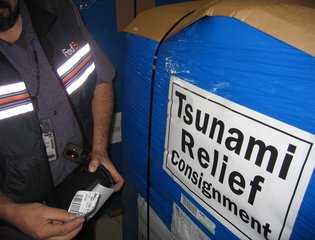On 19 August I was among those attending a wreath laying ceremony at Westminster Abbey to commemorate World Humanitarian Day. This provided an opportunity to remember friends and colleagues that we have lost and also provided a space to reflect on the inherent dangers for front line humanitarian staff. With an unprecedented string of four “level 3” humanitarian crises happening simultaneously in Iraq, South Sudan, Syria and the Central African Republic (not to mention the difficulties in Gaza) there is an even greater need to draw attention to the dangers that field workers face in their day to day work.
A recent report shows that attacks on aid workers have tripled since 2002 with 308 violent incidents in 2011. Even when taking account of the numbers of aid workers on the ground, the incidence of violence, especially kidnapping, is shown to be increasing. It is also important to acknowledge that local aid workers are particularly at risk, and are likely to be targeted for reasons of ethnicity or religion.
It is no mystery why this unwelcome evolution has taken place. Humanitarian assistance has become increasingly intertwined with military interventions making it impossible for local groups to truly differentiate between aid workers and other actors. Even the language of humanitarianism has been co-opted and there can be no better example of an oxymoron than the term ‘humanitarian war’ which appeared in 1999 during the NATO bombing of Federal Republic of Yugoslavia. Humanitarianism has become a fuzzy concept.
It has also become an increasingly politicised concept. Matthew Parris’s op-ed in the Times on 16 August argued that humanitarian crisis has been used as part of a flawed rationale for continued military intervention in the Middle East. He may well have a case, but humanitarian response has also been used as a ‘fig leaf’ for considered political inaction. One has to look no further than the Rwandan genocide as evidenced in the Joint Evaluation of Emergency Assistance to Rwanda (1996). It would appear that humanitarian assistance is used to help build political justification for both military intervention and military inaction.
Humanitarianism is becoming harder to define; more politicised; and more dangerous especially for local staff. I can offer no magic bullet solutions but as a community we need to learn lessons and adapt our operations accordingly.
I hope that all the activities on World Humanitarian Day can draw attention to the kind of challenges we face in 2014 and provide us with a space for both constructive reflection and action.
